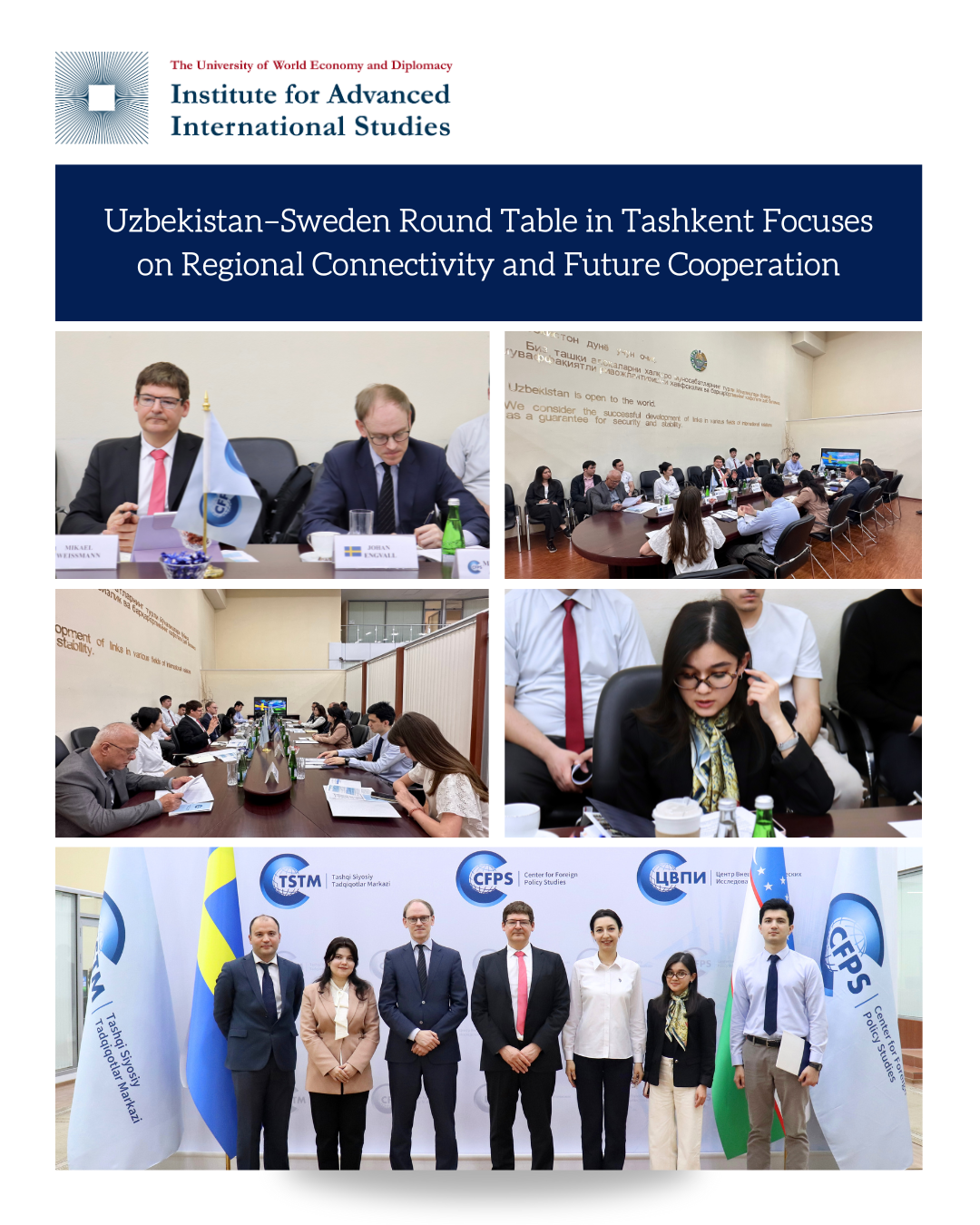
On April 7, a round table on “Uzbekistan – Sweden: Developing Cooperation in New Conditions” was held in Tashkent, bringing together leading research and policy institutions from both countries. The event was co-organised by the Center for Foreign Policy Studies and International Initiatives (Uzbekistan), the Swedish Institute of International Affairs, and the Swedish Defence University. The event also gathered experts from the Institute for Advanced International Studies, Development Strategy Center, Center for Economic Research and Reforms. The round table served as a platform for in-depth discussions on current global challenges, the evolving international order, and the prospects for enhanced regional and interregional cooperation.
The first session centred on key trends shaping international relations today, including geopolitical competition, shifting alliances, and the need for smaller and mid-sized states to pursue more flexible and diversified foreign policy strategies. Participants addressed the increasing relevance of Nordic-Central Asian cooperation and the importance of maintaining dialogue in the face of international uncertainty.
One of the highlights of the session was the presentation by Mushtariy Usmonova, Research Fellow at the IAIS Centre for European Studies, who delivered a keynote titled “Rethinking International Transport Routes and Supply Chains in the Face of Global Instabilities”. Her presentation offered a strategic assessment of how Uzbekistan and the broader Central Asian region can reposition themselves within global transport and logistics networks in light of emerging geopolitical and economic disruptions. Ms. Usmonova outlined the vulnerabilities of traditional supply chains and stressed the urgency of diversifying transport corridors. She emphasised the potential of East–West multimodal routes, the development of Trans-Caspian initiatives, and the integration of Central Asia into European and Nordic connectivity strategies.
The second session turned to regional questions, particularly the challenges and opportunities for deeper engagement between Uzbekistan and the Nordic-Baltic region. Discussions revolved around foreign policy transformations, connectivity, institutional cooperation, and the role of new actors and platforms in shaping post-pandemic regionalism. Participants highlighted the shared interest in stability, sustainable development, and resilience, which could serve as the foundation for a more structured partnership between Sweden and Uzbekistan.
The round table concluded with reflections on how academic and policy communities in both countries can contribute to a more structured and future-oriented partnership. Emphasis was placed on the importance of continued expert dialogue, joint research initiatives, and knowledge exchange to advance cooperation in a rapidly evolving international environment.